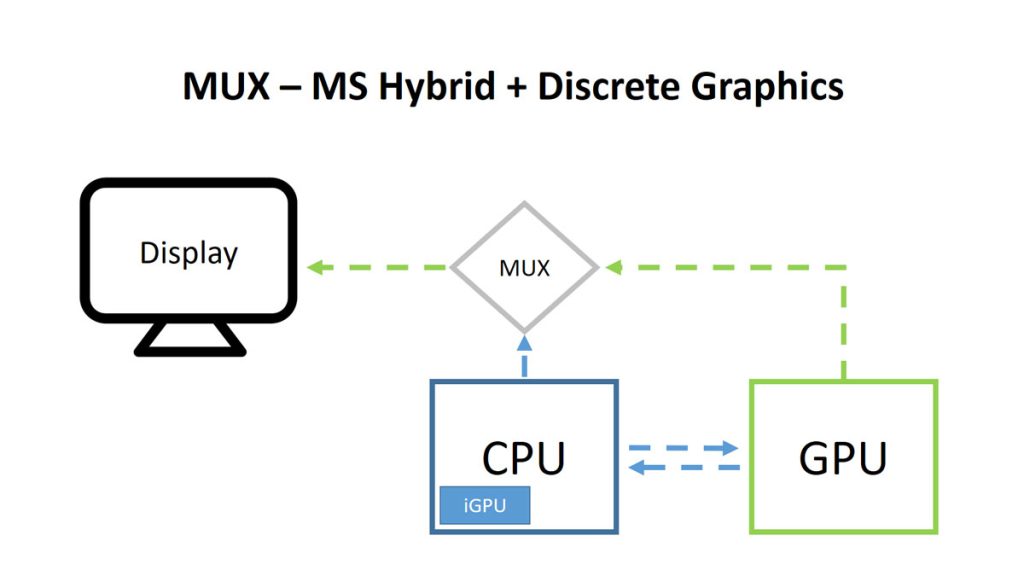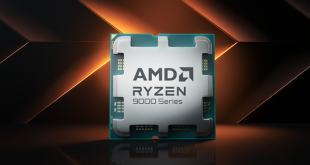On hybrid laptop designs, the term “hybrid” refers to laptops that include both integrated and discrete GPUs. These two may collaborate to increase power efficiency by routing graphics jobs to either graphics subsystem, depending on their complexity. However, on many computers, this causes an issue that Microsoft hopes to solve with CASO (Cross Adapter Scan-Out).
The iGPU is often linked to the laptop's display. With certain GPU workloads, the dGPU produces frames and transfers them to the iGPU, which will then pass them on to the display. This configuration strikes a compromise between performance and power efficiency, outsourcing demanding tasks to the dGPU for improved performance while saving power through the iGPU.

While gaming, the iGPU bottleneck might prevent the discrete GPU (dGPU) from reaching its full potential. To overcome this problem, Nvidia's Advanced Optimus and AMD's Smart Access Graphics use a multiplexer (MUX), enabling the dGPU to tackle gaming while the iGPU does daily chores. This configuration avoids the need for data transfers between GPUs, resulting in increased game performance. However, not all hybrid laptops have a MUX switch, and activating the dGPU might increase power consumption, resulting in shorter battery life. CASO simplifies this process by removing the need for MUX.
CASO has been developed to only require a copy of the rendered image, resulting in a considerable performance increase for hybrid laptops without specialist hardware. When employing CASO, Microsoft claims an average 16% boost in FPS and a 27% decrease in display lag. The company also claims that TDRs (Timeout Detection and Recover Events) are reduced by 45%, making these laptops more reliable.
This technology, according to Microsoft, is already included in Windows 11 (SV1 22000.1817 or later and SV2 22621.1413 or later) and does not need a minimum dGPU. CASO will operate with all GeForce GPUs running drivers version r515 or above. Intel GPUs will need Xe Graphics on Intel 11th Gen Core series or later, as well as WDDM driver model 3.0 or later. With WDDM driver 3.1 or newer, AMD Ryzen 6000 series and newer CPUs will also support this technology. As of now, CASO supports DirectX 11 (since 2021) and DirectX 12 titles (since early 2023).
Discuss on our Facebook page, HERE.
KitGuru says: Many older laptops running iGPUs and dGPUs simultaneously used to have it, but since efficiency has become more important in the laptop market segment, the usage of MUX switches has declined. Fortunately, Microsoft has CASO for those who wish to fully utilise their dGPU.
 KitGuru KitGuru.net – Tech News | Hardware News | Hardware Reviews | IOS | Mobile | Gaming | Graphics Cards
KitGuru KitGuru.net – Tech News | Hardware News | Hardware Reviews | IOS | Mobile | Gaming | Graphics Cards


